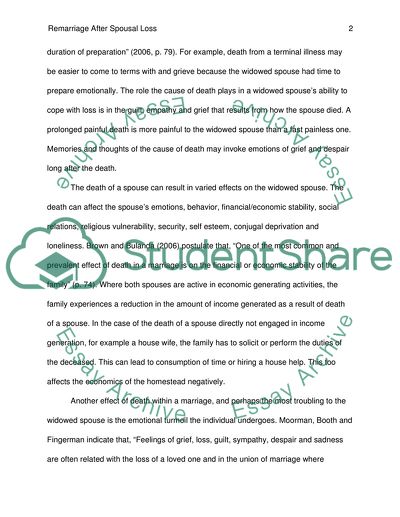Cite this document
(“Remarriage after Spousal Loss - Factors in Successful Second Marriage Essay”, n.d.)
Remarriage after Spousal Loss - Factors in Successful Second Marriage Essay. Retrieved from https://studentshare.org/psychology/1454171-remarriage-after-spousal-loss-factors-in-successful-second-marriage
Remarriage after Spousal Loss - Factors in Successful Second Marriage Essay. Retrieved from https://studentshare.org/psychology/1454171-remarriage-after-spousal-loss-factors-in-successful-second-marriage
(Remarriage After Spousal Loss - Factors in Successful Second Marriage Essay)
Remarriage After Spousal Loss - Factors in Successful Second Marriage Essay. https://studentshare.org/psychology/1454171-remarriage-after-spousal-loss-factors-in-successful-second-marriage.
Remarriage After Spousal Loss - Factors in Successful Second Marriage Essay. https://studentshare.org/psychology/1454171-remarriage-after-spousal-loss-factors-in-successful-second-marriage.
“Remarriage After Spousal Loss - Factors in Successful Second Marriage Essay”, n.d. https://studentshare.org/psychology/1454171-remarriage-after-spousal-loss-factors-in-successful-second-marriage.


